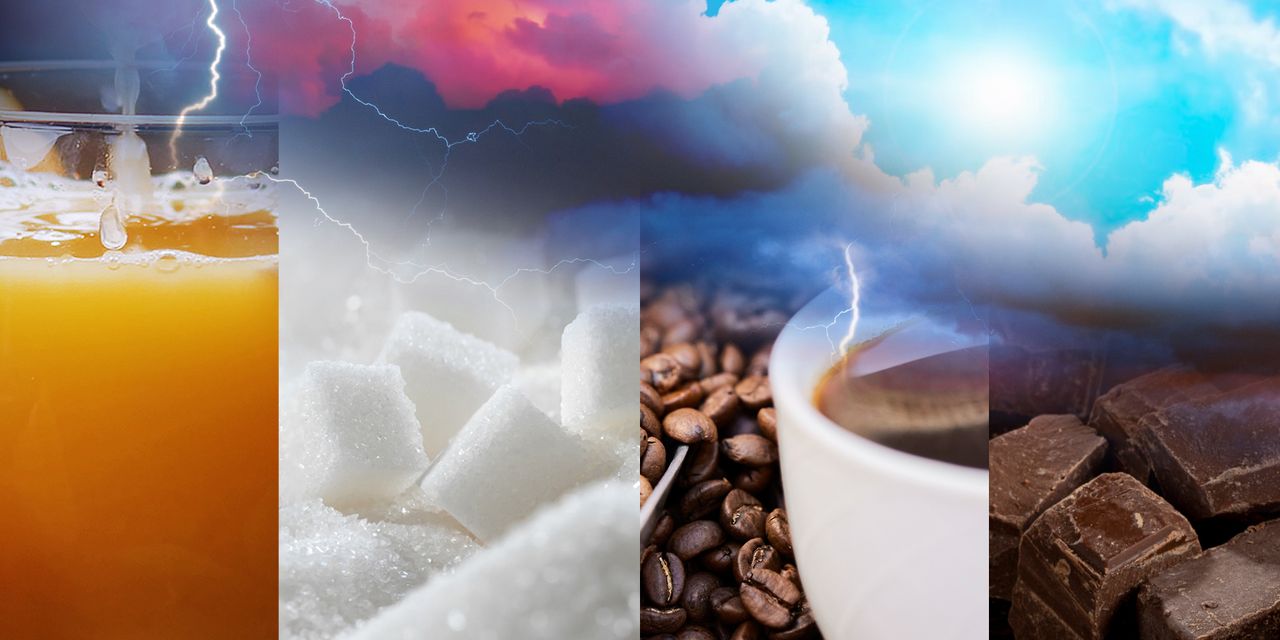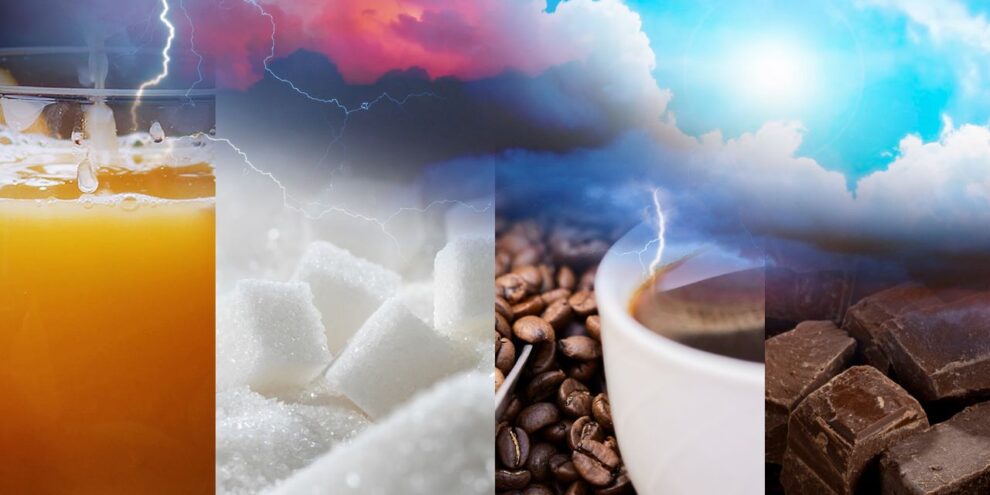
Some commodities that are grown rather than mined, known as “softs” to traders, have rallied so far this year, with sugar prices this week trading at their highest price in 11 years and orange-juice futures touching their highest prices on record.
“Most of the softs sector fall under the category of ‘weather derivatives’,” as weather plays a key role, said Darin Newsom, Barchart senior market analyst.
In recent years, Brazil has dealt with a La Niña weather pattern that reduced production of some of their main crops such as sugar, coffee, and soybeans at a time when demand for many of these commodities continues to increase, creating tight supplies, he said.
The reality of the tight supply and demand situation in the market for most soft commodities is seen in the “backwardated” forward price curve which happens when “nearby futures contracts are higher priced than deferred contracts,” said Newsom. Spot prices for sugar, coffee, cocoa and frozen concentrated orange juice currently trade at higher prices than those commodities for delivery in March 2024, for example.
The backwardated forward curve “tells us the commercial side of the market, those involved in the underlying cash commodity, are trying to lock in supplies to meet demand,” Newsom said.
Taking a look at the broader picture, year to date as of Thursday, the S&P GSCI Index SPGSCI SPGSCI, +0.19%, a benchmark for investment in the commodity markets, has declined by 2.7%, while the S&P GSCI Softs Index SPGSSF SPGSSF, -0.65%, a sub-index which measures the performance soft commodities including coffee, sugar, cocoa and cotton, has climbed more than 12%.
While Russia and Ukraine are not major producers or consumers of sugar, coffee or cocoa, the war between the two nations has led to supply-chain disruptions and higher energy and fertilizer prices, said Nikita Pandey, research analyst at the Economist Intelligence Unit (EIU). “Prohibitively high fertilizer prices have disincentivised growers, which has contributed to losses of acreage this year,” and that will have an impact next year as well.
Sugar prices tap an 11-year high
On the ICE Futures U.S. exchange, raw cane sugar futures SBN23, +0.43% SB00, +0.43% traded as high as at 24.85 cents a pound on Wednesday — their highest for most-active contract since April 2012, according to Dow Jones Market Data. It trades nearly 17% higher so far this year.
A drought in Brazil, followed by floods in India, as well strength in the Brazilian currency, the real, contributed to the rally in sugar, said James Roemer, publisher of WeatherWealth newsletter. India is holding back exports of sugar because its crop has been reduced by some 10% to 15% from previous estimates, and April and May is the key time of year for Brazil’s harvest, he said.
Pandey said demand for sugar has rebounded and will continue to rise in the 2023 to 2024 season as the global economy recovers from the effects of the pandemic and the Russia-Ukraine war.
However, Bill Weatherburn, commodities economist at Capital Economics, wrote in a note Friday, that the supply picture for sugar should improve by the end of the year, so Capital Economics expects the global sugar market to see an overall surplus for the 2022 to 2023 and 2023 to 2024 seasons.
Medium to long term, Pandey said “changing food habits, despite rising incomes and population growth in emerging markets, where urbanizing populations are adopting the dietary habits of developed countries, will hurt consumption.”
A record for orange-juice futures
Among the soft commodities, frozen concentrated orange juice has seen an impressive rally with futures prices up by more than 37% year to date as of Thursday. Prices OJK23, +0.51% OJ00, +0.51% settled at a record high on Tuesday at $2.849 a pound, based on data going back to 1967.
Strong post-COVID demand for vitamin C, the worst orange crop in Florida since the 1920s, and harvest delays in Northern Brazil have all “inspired this extraordinary rally,” said Roemer.
In a report released Tuesday, the U.S. Department of Agriculture pegged the U.S. all-orange forecast for the 2022 to 2023 season at 2.57 million metric tons, or 62.25 million boxes.
That would be the lowest in 86 years and mark a decline of 23% from the previous session, according to Reuters.
In a recent newsletter, Roemer also said heavy rains in Sao Paulo, Brazil in the next few weeks will delay the orange harvest pointed to citrus greening, a citrus plant disease, in Florida
Coffee and cocoa rally
So far this year as of Thursday, Arabica coffee futures KCN23, +0.76% KC00, +0.76% have gained more than 16%, while cocoa is CCN23, -0.28% CC00, -0.28% up more than 12%.
Low coffee production this year and lower stocks will keep prices supported throughout the 2023 to 2024 period, said EIU’s Pandey. Next year, she expects the market to remain in deficit, with “firmer” demand and a decline in production leading to a rise in prices for Arabica and Robusta coffee beans.
Given that the European Union, the U.S. and Brazil together account for more than 50% of global coffee consumption, “recovering demand in those markets will have a significant effect on our consumption forecasts,” she said.
In the coming two years, the biennial crop season in Brazil, emergence of an El Niño weather event, and reduced fertilizer supply are factors that will need to be closely monitored as they can have a significant effect on overall coffee output trends, said Pandey.
For cocoa, adverse weather conditions in “practically all” major producers, particularly Côte d’Ivoire in West Africa and Ghana — which together account for more than 60% of global output — has led to a decline in cocoa production, she said.
She expects demand for cocoa to rise this year, and see stronger growth next year — lifting global cocoa consumption to just over 4.2 million metric tons, “as the underlying outlook improves in many European countries.”
‘Softs’ outlook
Looking ahead, any “aggravation” in the Russia-Ukraine that may affect the supply chain adversely, and extreme weather conditions that may lead to reduced production, would likely result in rising prices for several soft commodities, said Pandey.
On the other hand, “any sharp slowdown in the global economy could hit demand,” though that’s not the Economist Intelligence Unit’s baseline forecast, she said.
“While global growth has slowed significantly, it is proving to be resilient in the face of rising cost pressures and higher interest rates,” said Pandey. “China’s reopening is also helping.”









